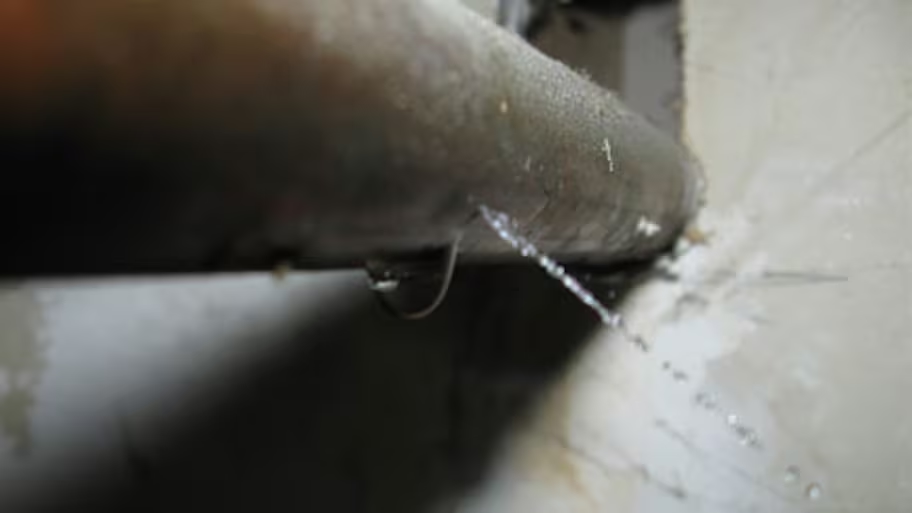Discover the Key Factors Contributing To Water Leakage in Your Home
Discover the Key Factors Contributing To Water Leakage in Your Home
Blog Article
Every person has got their own way of thinking on the subject of How Fast Water Damage Can Ruin Your Home.

Leakages not only create waste of water but can also cause unnecessary damages to your home and promote unwanted organic development. Water leakages may go unnoticed given that most of the pipework in our home is concealed. By looking and also understanding for everyday circumstances that trigger leakages, you can safeguard your house from future leakages and also unneeded damages. Today, we will consider six leak causes that might be causing your pipes to leak.
Instant temperature adjustments.
Extreme temperature level modifications in our pipelines can cause them to increase and acquire suddenly. This growth and contraction might trigger cracks in the pipelines, particularly if the temperature level are below freezing. If you kept an eye on exactly how your plumbing works, it would be best. The visibility of the formerly stated scenarios frequently shows a high danger.
Rusty water supply
This might be the cause of staining or warping on your water pipelines. If our plumbing system is old, think about changing the pipelines since they are at a greater danger of rust than the more recent designs.
Defective Pipe Joints
The point at which your pipes connect is often the weakest web link in the waterline. Pipe joints can wear away in time, resulting in water leaks. The bulk of pipe joints are not conveniently noticeable. If you have loud pipelines that make ticking or banging sounds, especially when the warm water is activated, your pipeline joints are probably under a lot of pressure. It is a good idea to have your plumber evaluate your system yearly.
Trespassing roots
Many water leakages start outside the house instead than inside it. You could observe wet patches or sinkholes in your yard, as well as that could indicate that tree origins are invading water lines triggering water to seep out.
Poor Water Connectors
Sometimes, a leak can be caused by loosened pipes and pipes that supply your appliances. Typically, moving is what causes the loose water Connections. You might locate in the case of a washing device, a tube may spring a leak as a result of shaking throughout the spin cycle. In case of a water links leakage, you may observe water running straight from the supply line or pools around your home appliances.
Clogged Drains
Obstructed drains might be bothersome as well as inconveniencing, however they can in some cases wind up creating an overflow resulting in break pipelines. Maintain removing any type of materials that might go down your drains pipes that could clog them to prevent such inconveniences.
All the above are causes of leakages but not all water leakages arise from plumbing leakages; some leaks could come from roofing leakages. All leakages need to be repaired instantly to stay clear of water damage.
Leakages not only trigger waste of water yet can also create unneeded damage to your home as well as promote undesirable natural growth. By recognizing and looking for daily situations that trigger leaks, you can protect your house from future leakages as well as unnecessary damage. Today, we will certainly look at six leak causes that may be creating your pipelines to trickle.
At times, a leakage can be triggered by loose hoses and also pipes that provide your home appliances. In instance of a water links leak, you may notice water running straight from the supply line or puddles around your home appliances.
How To Check For Water Leak In Your Home
How To Check for Leaks
The average household's leaks can account for nearly 10,000 gallons of water wasted every year and ten percent of homes have leaks that waste 90 gallons or more per day. Common types of leaks found in the home are worn toilet flappers, dripping faucets, and other leaking valves. These types of leaks are often easy to fix, requiring only a few tools and hardware that can pay for themselves in water savings. Fixing easily corrected household water leaks can save homeowners about 10 percent on their water bills.
To check for leaks in your home, you first need to determine whether you're wasting water and then identify the source of the leak. Here are some tips for finding leaks:
Take a look at your water usage during a colder month, such as January or February. If a family of four exceeds 12,000 gallons per month, there are serious leaks.
Check your water meter before and after a two-hour period when no water is being used. If the meter changes at all, you probably have a leak.
Identify toilet leaks by placing a drop of food coloring in the toilet tank. If any color shows up in the bowl after 10 minutes, you have a leak. (Be sure to flush immediately after the experiment to avoid staining the tank.)
Examine faucet gaskets and pipe fittings for any water on the outside of the pipe to check for surface leaks.
Undetected water leaks can happen without the home or business owner even realizing. If you suspect a water leak, but not able to find the source. It is time to contact a professional water leak detection service, The Leak Doctor.
How To Find a Water Leak In Your Home
https://www.leakdoctor.com/blog/How-To-Check-For-Water-Leak-In-Your-Home_AE197.html

I'm very fascinated by Top Causes of Home Water Leaks and I hope you enjoyed the post. If you enjoyed our page please remember to pass it around. We take joy in reading our article about Top Causes of Home Water Leaks.
Expertise available here. Report this page